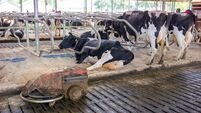Biosecurity crucial as African Swine Fever tracks across Europe

Pigs become sick and die within a few days after ASF infection. Picture: NHAC NGUYEN/AFP via Getty Images
With new African Swine Fever cases in Germany and Italy threatening the pork industries of the Netherlands and France, the Department of Agriculture here has warned travellers not to risk bringing pork or pork products into Ireland.
The first case of African Swine Fever (ASF) in the German state of Lower Saxony has particularly heightened fears in the pig industry. Confirmed on July 2, more than 300km from any previous case, human spread is the suspected cause.












